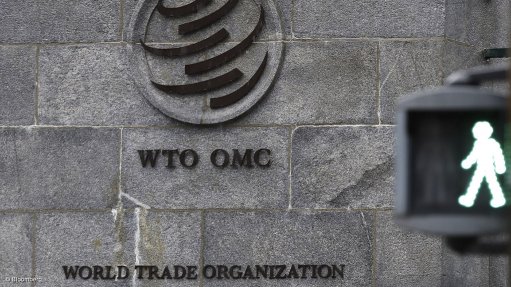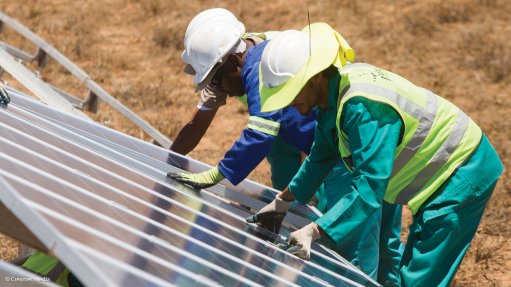Economic mobility in developing countries has stalled for the last 30 years – World Bank
Economic mobility has been impeded in developing countries over the last 30 years, says the World Bank in its ‘Fair Progress? Economic Mobility across Generations Around the World’ report, released on Wednesday.
The report, which tracks economic mobility between parents and their children through the prism of education, looked at people born between 1940 and 1980, and found that 46 out of 50 countries with the lowest rates of mobility from the bottom to the top are in the developing world.
“All parents want their children to have better lives than their own, yet the aspirations of too many people – especially poor people – are thwarted by unequal opportunities,” World Bank CEO Kristalina Georgieva said in a statement.
She pointed out that it is important to invest in children from a very early age so that they were well-nourished and well-educated.
The report also finds that gender gaps are closing, with girls in high-income countries now outperforming boys in tertiary education and catching up in the developing world.
“Soon, the share of girls with [greater] education than their parents will exceed the equivalent share for boys globally.”
The ability to move up the economic ladder, irrespective of the socioeconomic background of one’s parents, contributes to reducing poverty and inequality, and may help boost economic growth by giving everyone a chance to use their talents, the report notes.
People living in more mobile societies are more optimistic about their children’s future, which is likely to lead to a more aspirational and cohesive society.
The report draws on a newly developed global database of intergenerational mobility with unprecedented coverage of 148 countries, home to 96% of the world’s population.
It paints a uniquely detailed picture of socioeconomic mobility and inequality of opportunity around the world. It also sheds light on the patterns and drivers of income mobility and their relationship with educational mobility by examining available data from 75 countries.
The data shows that, on average, upward mobility from the bottom has declined and the numbers of people remaining trapped at the bottom has increased in developing economies.
For individuals born in poorer households, the opportunity to climb up the ladder is narrowing in many economies in which average living standards are already much lower compared with high-income economies.
The report notes that countries with higher mobility in education are better placed to generate future growth, as well as reduce poverty and inequality. And, conversely, stalled mobility raises concerns about future progress, particularly for Africa and South Asia, where most of the world’s poor live and where the prospects of children are still too strongly tied to the socioeconomic status of their parents.
But the report also finds huge variation in the extent of intergenerational mobility in the developing world. For example, only 12% of the people born in the 1980s in the Central African Republic, Guinea and South Sudan have achieved education levels higher than their parents, compared with 89% of people from South Korea and 85% from Thailand.
A close examination of six large developing countries – Brazil, China, Egypt, India, Indonesia and Nigeria – reveals that economic mobility rose in all of them from the 1940s to the 1980s, albeit to varying degrees.
However, since the 1960s, progress has slowed in four of these countries and completely stalled in China and Nigeria.
“This report paints a sobering but nuanced picture of economic mobility and inequality of opportunity in the developing world,” Georgieva said.
Comments
Press Office
Announcements
What's On
Subscribe to improve your user experience...
Option 1 (equivalent of R125 a month):
Receive a weekly copy of Creamer Media's Engineering News & Mining Weekly magazine
(print copy for those in South Africa and e-magazine for those outside of South Africa)
Receive daily email newsletters
Access to full search results
Access archive of magazine back copies
Access to Projects in Progress
Access to ONE Research Report of your choice in PDF format
Option 2 (equivalent of R375 a month):
All benefits from Option 1
PLUS
Access to Creamer Media's Research Channel Africa for ALL Research Reports, in PDF format, on various industrial and mining sectors
including Electricity; Water; Energy Transition; Hydrogen; Roads, Rail and Ports; Coal; Gold; Platinum; Battery Metals; etc.
Already a subscriber?
Forgotten your password?
Receive weekly copy of Creamer Media's Engineering News & Mining Weekly magazine (print copy for those in South Africa and e-magazine for those outside of South Africa)
➕
Recieve daily email newsletters
➕
Access to full search results
➕
Access archive of magazine back copies
➕
Access to Projects in Progress
➕
Access to ONE Research Report of your choice in PDF format
RESEARCH CHANNEL AFRICA
R4500 (equivalent of R375 a month)
SUBSCRIBEAll benefits from Option 1
➕
Access to Creamer Media's Research Channel Africa for ALL Research Reports on various industrial and mining sectors, in PDF format, including on:
Electricity
➕
Water
➕
Energy Transition
➕
Hydrogen
➕
Roads, Rail and Ports
➕
Coal
➕
Gold
➕
Platinum
➕
Battery Metals
➕
etc.
Receive all benefits from Option 1 or Option 2 delivered to numerous people at your company
➕
Multiple User names and Passwords for simultaneous log-ins
➕
Intranet integration access to all in your organisation


















